CBS, NBC, CNN pivot their coverage of the Hunter Biden scandal
CBS News is the latest news organization to confirm the Hunter Biden laptop after previously dismissing the controversy when it first emerged during the 2020 presidential election.
2022 was a jam-packed year for news, yet one of the most covered stories wasn't really new at all.
During the 2020 presidential election, the big "October surprise" came in the form of Hunter Biden's infamous laptop, which shed a light on the shady foreign business dealings of the son of then-candidate Joe Biden. But the legacy media rejected the damning revelations first reported by the New York Post, either pushing a false Russian disinformation narrative or not even mentioning it at all.
That all changed this year.
Following Hunter Biden's own disclosure that he was being federally investigated over his "tax affairs," news organizations appeared to be more eager to give the laptop a look.
These are the media outlets that finally verified the Hunter Biden laptop throughout the year:
The New York Times (March 16, 2022)
In March, The New York Times published a report about the federal investigations into alleged tax offenses Hunter Biden is facing. The Times wrote that emails cited in the story "were obtained by The New York Times from a cache of files that appears to have come from a laptop abandoned by Mr. Biden in a Delaware repair shop," adding, "The email and others in the cache were authenticated by people familiar with them and with the investigation."
At the time, however, the Times ran a report sounding the alarm about "Russian disinformation," claiming that then-President Trump was warned that Russians were "using" his personal attorney Rudy Giuliani, who was given the laptop before providing its contents to the press, to spread false claims about the Bidens.
"The intelligence agencies warned the White House late last year that Russian intelligence officers were using President Trump’s personal lawyer Rudolph W. Giuliani as a conduit for disinformation aimed at undermining Joseph R. Biden Jr.’s presidential run, according to four current and former American officials," the Times reported in Oct. 2020.
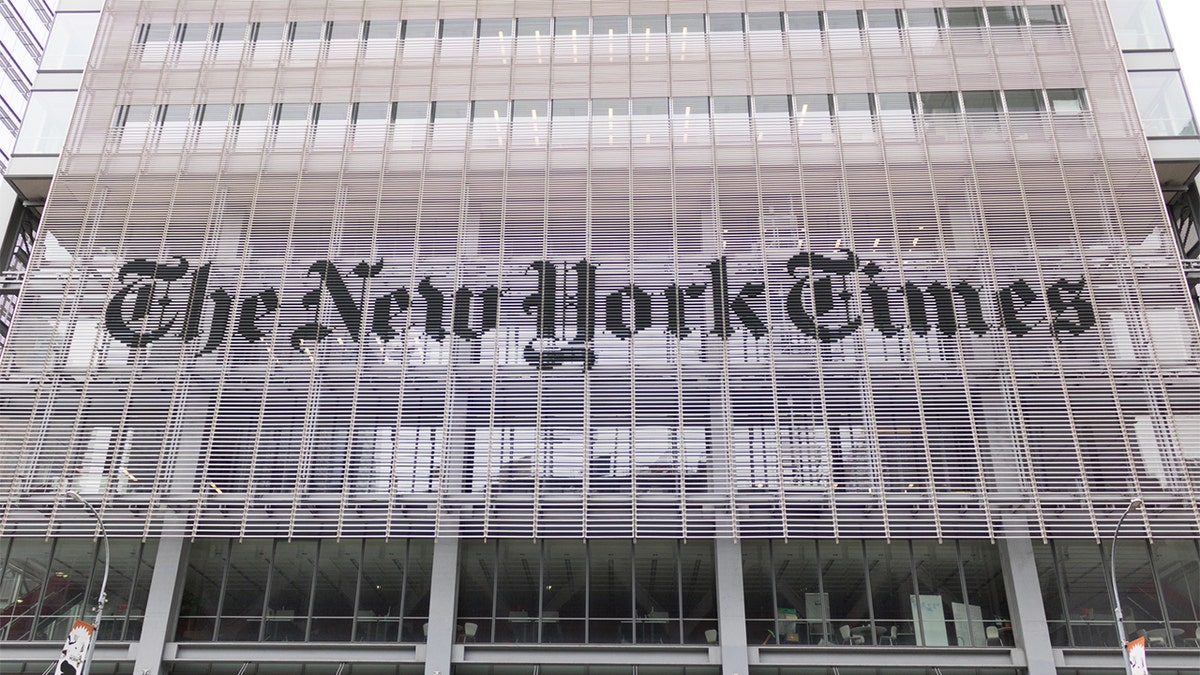
The New York Times was the first of several legacy media organizations in 2022 to verify the Hunter Biden laptop. (iStock)
The Washington Post (March 30, 2022)
Just days after the Times verified Hunter Biden's laptop, The Washington Post followed suit in its report about Hunter Biden's "multimillion-dollar" financial ties to the Chinese energy company CEFC China Energy.
"The Post review draws in part on an analysis of a copy said to be of the hard drive of a laptop computer that Hunter Biden purportedly dropped off at a Delaware repair shop and never came to collect. The laptop was turned over to the FBI in December 2019, according to documents reviewed by The Post, and a copy of the drive was obtained by Rudy Giuliani and other advisers to then-President Donald Trump a few months before the 2020 election," the Post reported. "After the New York Post began publishing reports on the contents of the laptop in October 2020, The Washington Post repeatedly asked Giuliani and Republican strategist Stephen K. Bannon for a copy of the data to review before the election, but the requests were rebuffed or ignored."
In a separate report explaining how The Washington Post analyzed Hunter Biden's laptop, the Post wrote, ‘Thousands of emails purportedly from the laptop computer of Hunter Biden, President Biden’s son, are authentic communications that can be verified through cryptographic signatures from Google and other technology companies," according to two security experts.
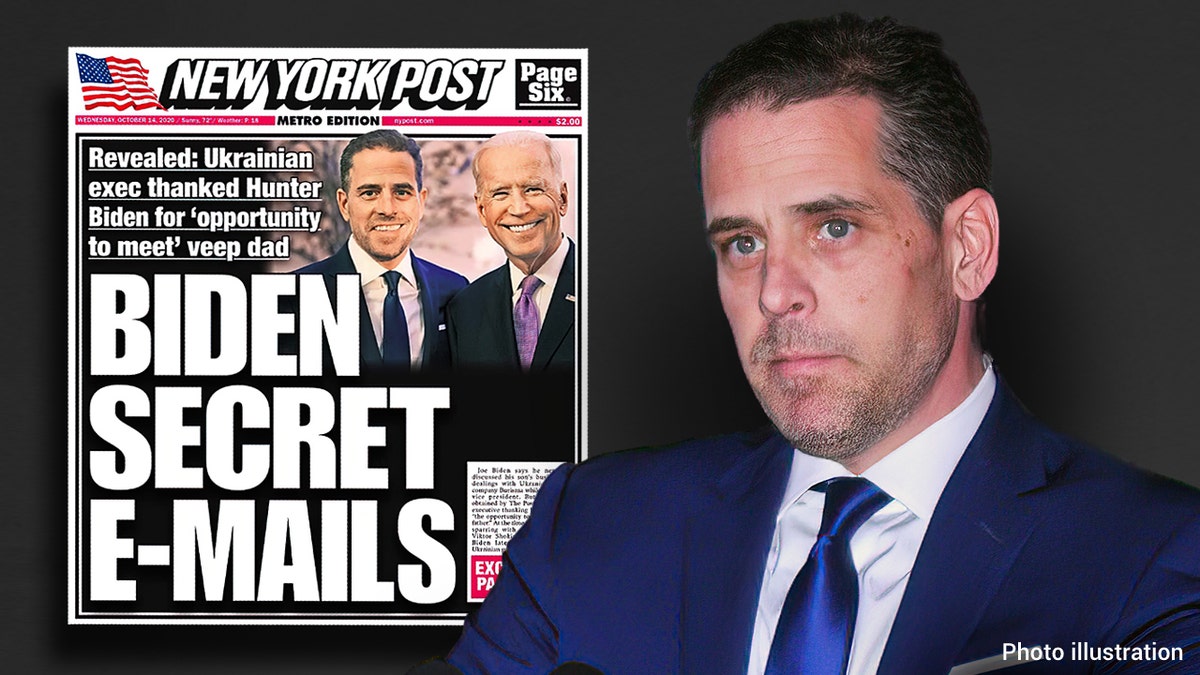
The New York Times and The Washington Post both verified Hunter Biden's laptop after dismissing the New York Post's bombshell reporting during the 2020 presidential election. (Getty images | New York Post)
During the 2020 presidential election, the Post used a variation of the "Republicans pounce" trope to frame the story, running the headline, "Three weeks before Election Day, Trump allies go after Hunter — and Joe — Biden."
Right out of the gate, the report expressed heavy skepticism towards the legitimacy of Hunter Biden's emails and sowed doubt in the GOP sources who first obtained the laptop.
"President Trump’s personal attorney Rudolph W. Giuliani and his former top adviser Stephen K. Bannon, who have attracted the scrutiny of U.S. authorities for their political dealings in recent months, helped make public private materials purported to belong to Democratic presidential nominee Joe Biden’s son in an attempt to swing support to the struggling incumbent," the Post wrote. "The Washington Post was unable to verify the authenticity of the alleged emails and other correspondence that the New York Post published Wednesday and said had come from the younger Biden’s computer and hard drive."
The report attempted to tie the New York Post's reporting to Russia by highlighting Giuliani's past interactions with Ukrainian lawmaker Andrii Derkach, who the U.S Treasury had sanctioned for being an "active Russian agent interfering in the 2020 campaign, which Derkach has denied."
It went on to claim the story "did not markedly advance what is already known about Hunter Biden’s foreign business dealings, other than to suggest that at one point he gave Vadym Pozharskyi, a Ukrainian business colleague, ‘an opportunity’ to meet his father. The Biden campaign said the vice president’s schedule indicated no such meeting."
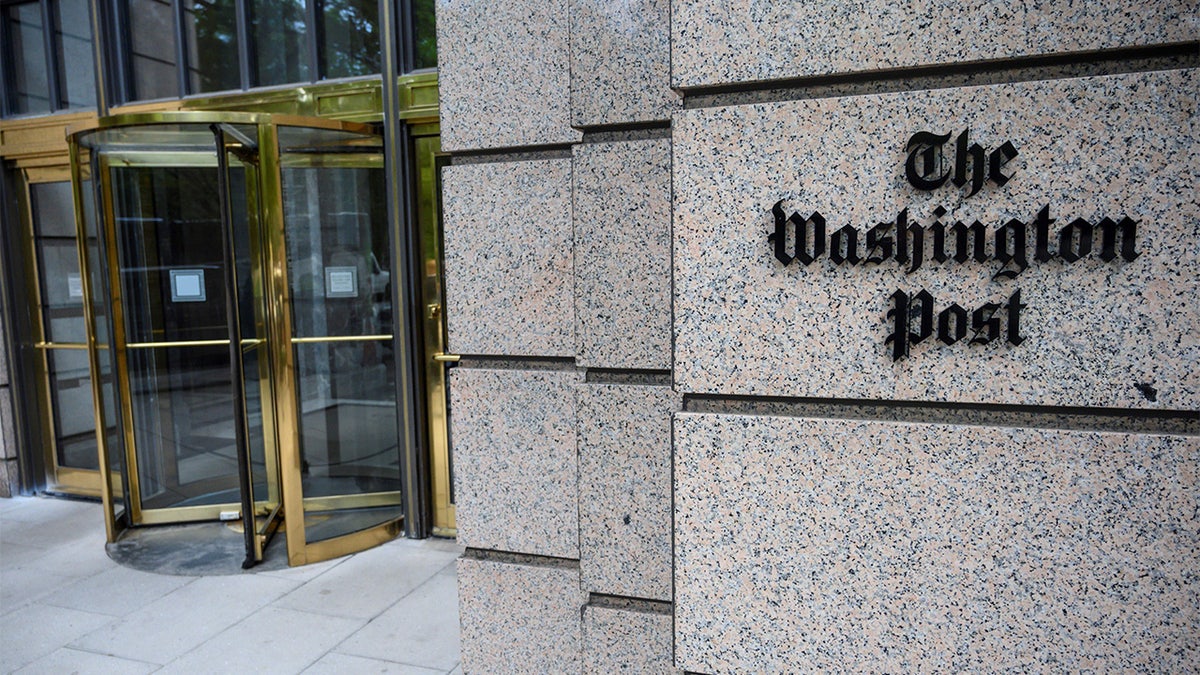
The Washington Post published a separate report outlining how it was finally able to verify Hunter Biden's laptop. ((Eric BARADAT / AFP))
Meanwhile, the paper published multiple opinion pieces urging readers to dismiss the controversy altogether. Washington Post columnist Greg Sargent penned a piece declaring the scandal "fake" and "laughably weak," claiming, "While Trump and his propagandists would surely prefer to have a more compelling scandal to tout, the thinness of this new gruel is largely secondary." Fellow Post columnist David Ignatius penned a piece titled, "The truth behind the Hunter Biden non-scandal," arguing Hunter Biden’s ties to the Ukrainian gas company Burisma "isn’t a scandal about his father, as the Trump campaign claims, but part of a personal tragedy for the vice president’s son, compounded by this week’s dissemination of what looks like disinformation about Joe Biden’s role."
NBC News (May 19, 2022)
NBC News went through a similar reversal in May with its report about Hunter Biden's lavish spending, saying at the time "NBC News obtained a copy of Biden’s laptop hard drive from a representative of Rudy Giuliani and examined Biden’s business dealings from 2013 to 2018 based on the information available on the hard drive and the scope of the documents released by the Senate."
Ahead of the final presidential debate on Oct. 22, 2020, where then-President Trump hammered opponent Joe Biden on his son's business dealings, NBC News correspondent Hallie Jackson previewed Trump's attack lines as perhaps part of a "foreign disinformation campaign."
"The president's also expected to bring up Hunter Biden and unverified emails of his business dealings, described by many intelligence experts as having hallmarks of a foreign disinformation campaign," Jackson reported at the time. "The Biden campaign says they're ready for the attack, hoping to flip the script to argue the president's more obsessed with Biden's family than American families."
Jackson also made an effort to degrade President Trump's debate guest, former Hunter Biden associate Tony Bobulinski, who claimed the former vice president was directly involved with his son's business dealings.
"While President Trump is expected to bring a former business associate of Hunter Biden's, Joe Biden is expected to bring small business owners struggling in this pandemic," Jackson told NBC's Lester Holt.
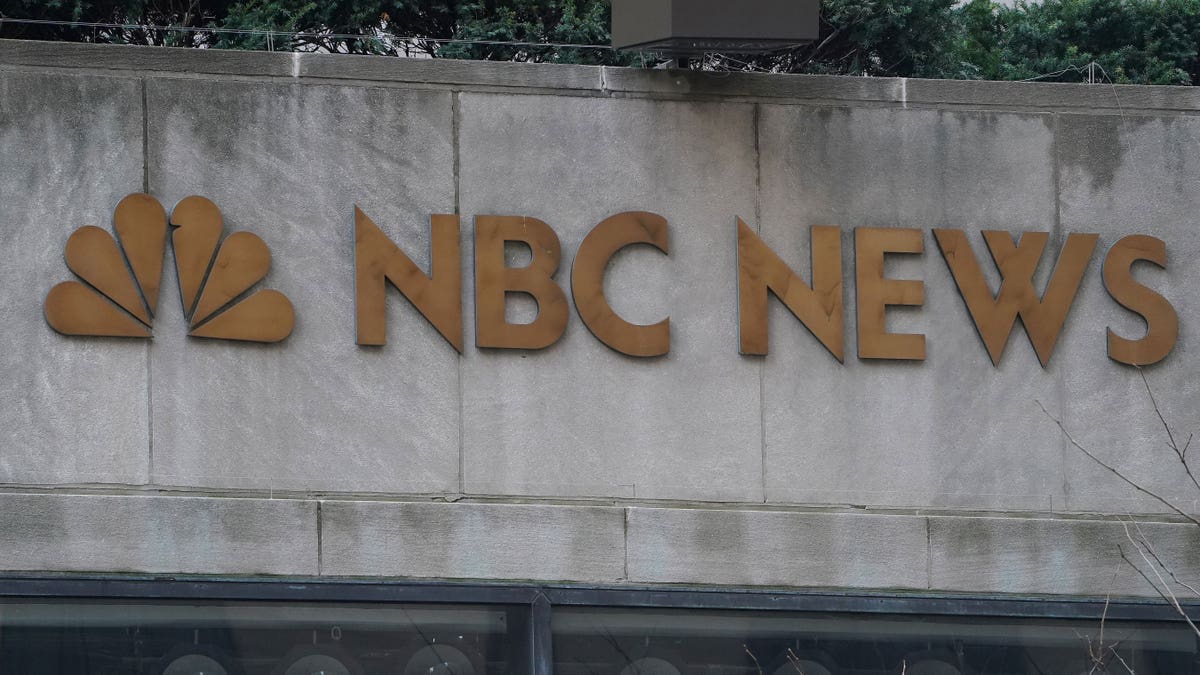
NBC News and its cable news counterpart MSNBC went to great lengths to discredit the Hunter Biden laptop before admitting it was real. REUTERS/Carlo Allegri (REUTERS/Carlo Allegri)
The coverage on MSNBC, known for its unabashed liberal commentary, was far less restrained in dismissing the New York Post's reporting.
Right out of the gate, "Morning Joe" co-host Joe Scarborough declared the story "false" and later claimed it was "so obviously" Russian disinformation, asking, "Why are we spreading the lies here?"
Co-host Mika Brzezinski cited multiple reports about intelligence agencies investigating Giuliani's dealings with "alleged Russian agents," as well as whether emails from Hunter Biden's laptop are "linked to a foreign intel operation."
"Deadline: White House" host Nicolle Wallace was more confident in dismissing Hunter Biden's laptop, telling viewers, "We shouldn't look at it as anything other than a Russian disinformation operation." MSNBC anchor Katy Tur mocked the Post's story, saying it "dropped like a bomb," but to "wither under scrutiny, not really dropping like a bomb."
MSNBC anchor Stephanie Ruhle attacked those who were covering the Hunter Biden controversy, referring to it as a "so-called story" with "unverified claims."
"We are now four days away from the election and the truth is more important than ever," Ruhle told her viewers at the time. "The truth is that we're in the middle of a pandemic. The truth is that millions of Americans are out of work. The truth is we have to listen to science. And in these final days, instead of debating crowd size or unverified claims or conspiracy theories, we should be talking about policy, values and ideas."
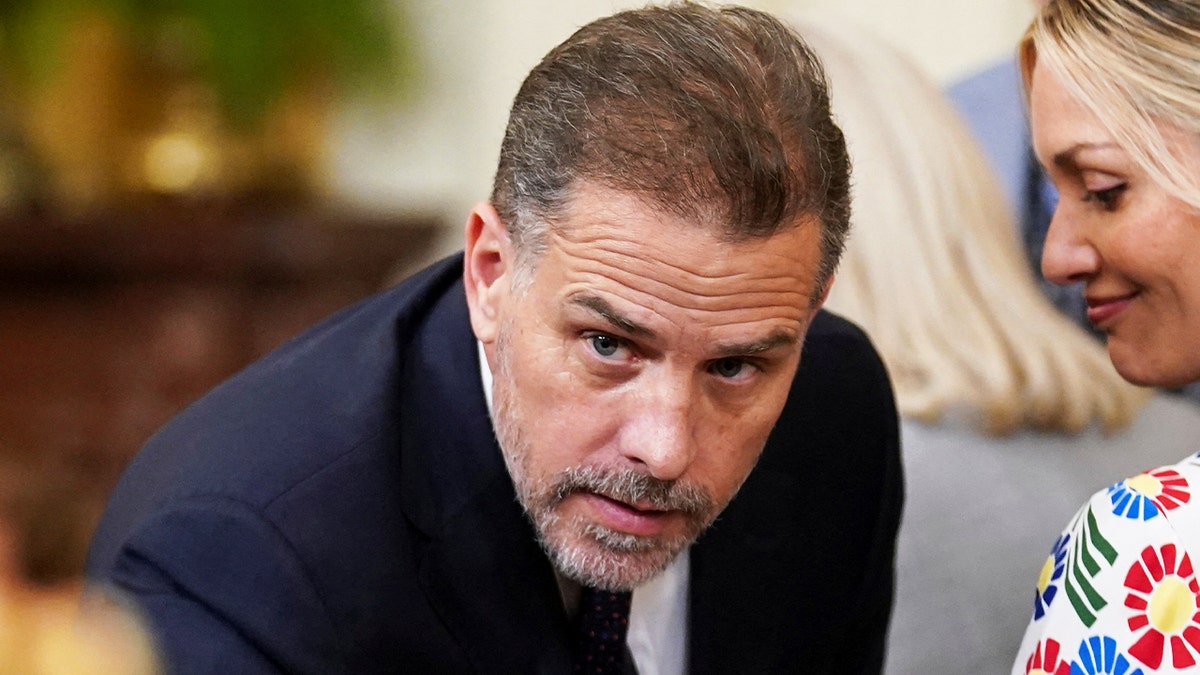
Media outlets waited until after President Biden was elected to seriously report on the scandals plaguing his son Hunter. (Kevin Lamarque/Reuters)
CNN (July 27, 2022)
CNN revealed it, too, had authenticated emails from the laptop in a report about Hunter Biden's finances.
"CNN hired a cyber forensics expert to help authenticate a cache of emails related to Hunter Biden’s finances that were posted on the internet by a former Trump White House aide and allegedly traced back to a laptop that turned up at a Delaware repair shop," CNN wrote in July. "Jake Williams, a former National Security Agency operative, who analyzed the emails for CNN, said he was able to authenticate a subset of the emails because they contained verified signatures within their metadata that showed they had not been modified. Only emails he authenticated are cited in this report."
But that was long after CNN was caught spiking the laptop story when it first broke, according to recordings obtained by Project Veritas that were released in December 2020.
"Obviously, we're not going with the New York Post story right now on Hunter Biden," CNN political director David Chalian said during a conference call on Oct. 14, the same day the Post published its first story on Hunter Biden's emails. Chalian later insisted the report was "giving its marching orders" to the "right-wing echo chamber about what to talk about today."
"The Trump media, you know, moves immediately from – OK, well, never mind – the [Michael Flynn] unmasking was, you know, found to be completely nonsensical to the latest alleged scandal and expects everybody to just follow suit," then-CNN president Jeff Zucker told his staff on Oct. 16. "So, I don't think that we should be repeating unsubstantiated smears just because the right-wing media suggests that we should."
"There's a lot about this story that does not add up," CNN's Brian Stelter told his viewers at the time. "And, I mean, for all we know, these emails were made up, or maybe some are real and some are fakes, we don't know. But we do know that this is a classic example of the right-wing media machine."
MSNBC BURIES NBC NEWS REPORT ON HUNTER BIDEN LAPTOP, OFFERS LESS THAN 4 MINUTES OF COVERAGE
After complaining about the coverage of the emerging scandal that was virtually ignored by the liberal media, Stelter went on to call the Post's reporting of Hunter Biden's laptop a "manufactured scandal," a "so-called scandal" and suggested the newspaper is not a "fully reliable source."
Just days before his August firing from CNN, Stelter acknowledged the Hunter Biden scandal is "not just a right-wing media story" and constituted a "real problem for the Bidens."
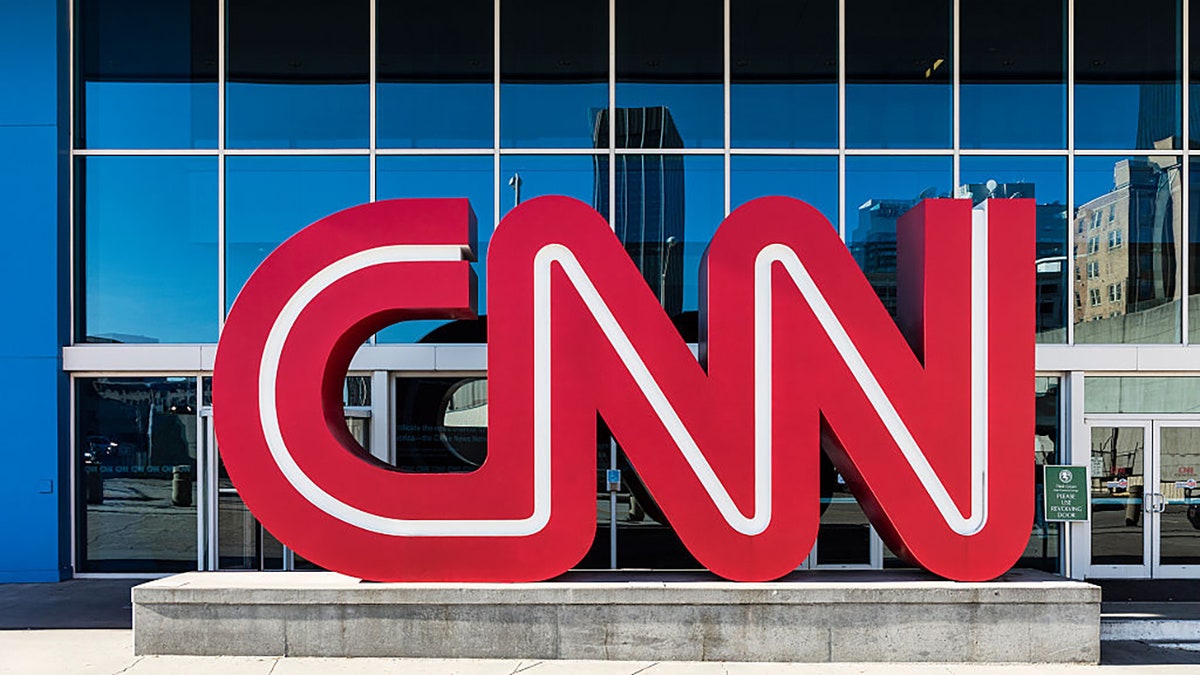
CNN finally verified the Hunter Biden laptop as its new boss Chris Licht is attempting to restore the network's credibility after years of anti-Trump coverage. (Photo by John Greim/LightRocket via Getty Images) ( John Greim/LightRocket via Getty Images)
CBS News (November 21, 2022)
CBS News was late to the party, do a complete 180 on its coverage of the Hunter Biden laptop.
A report that aired on "CBS Mornings" offered a deep dive into the network's efforts to authenticate the device purportedly belonging to President Biden's son.
"As Republicans take control of the House, Hunter Biden, the president’s son will be a target for investigations and that means data from a laptop purported to belong to Biden could be crucial to the investigatory process. CBS News has obtained its data, not through a third party or political operative, but directly from the source who told us they provided it to the FBI under subpoena. We commissioned an independent forensic review to determine its authenticity," CBS host Tony Dokoupil told viewers in November.
However, like the other outlets, CBS News didn't always take the controversy seriously.
In October 2020, just days after the New York Post published its bombshell reporting about the laptop that shed light on Hunter Biden's shady business dealings overseas, then-President Trump had a contentious exchange with "60 Minutes" correspondent Lesley Stahl.
Stahl pushed back on Trump's assertion that then-candidate Biden was "in the midst of a scandal."
"He's not," Stahl replied.
"Of course he is, Lesley," Trump sternly doubled down.
"No, come oon," Stahl continued to reject the president's claim, before lecturing him, "This is '60 Minutes' and we can't put on things that we can't verify."
In a separate exchange where Trump hammered CBS News for not covering the controversy, Stahl repeatedly insisted that the laptop "can't be verified."
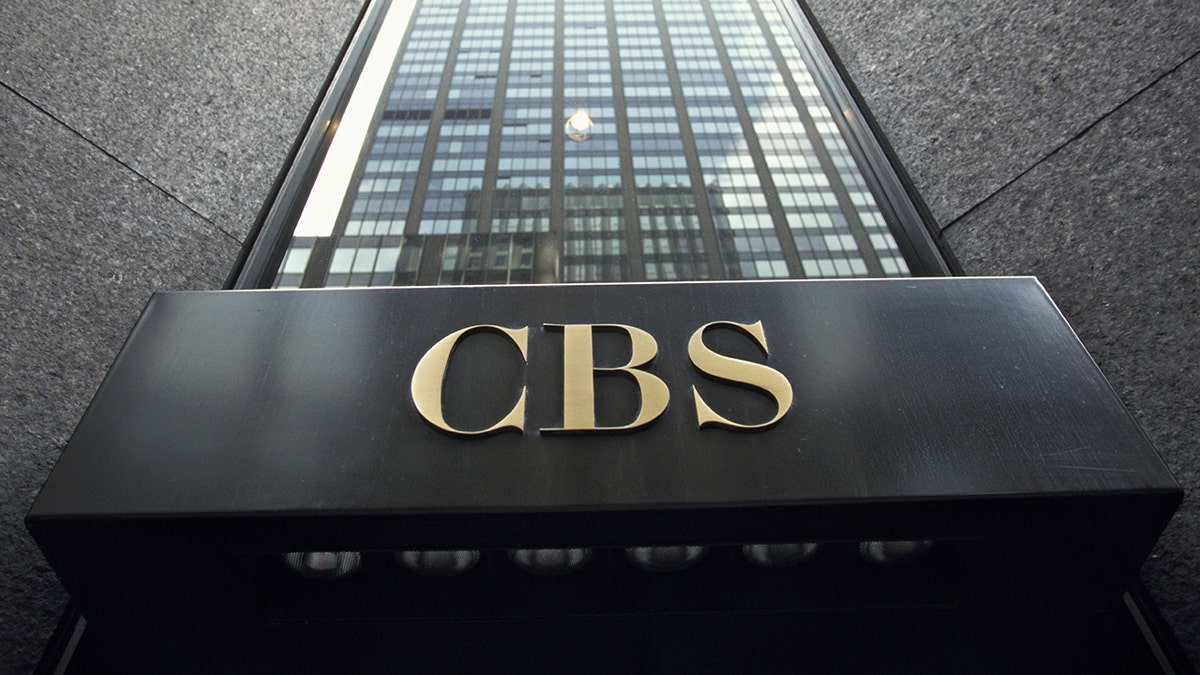
CBS News was mocked by critics for taking so long in verifying the Hunter Biden laptop over two years after the New York Post broke the story. (Photo by James Leynse/Corbis via Getty Images) (Getty Images)
At one point on the campaign trail, CBS News correspondent Bo Erickson faced hostile pushback by other journalists, including one of his own colleagues, just for asking about the laptop.
"My @CBSEveningNews report clearly lays out warnings about Giuliani & Russian disinformation," then-CBS News White House correspondent Paula Reid tweeted, attempting to undercut the legitimacy of Erickson's question to Biden.
Honorable Mention: Politico (September 21, 2021)
Way ahead of The New York Times, The Washington Post, NBC News, CNN and CBS News, Politico confirmed the authenticity of Hunter Biden's emails in September 2021 when publishing reporting from correspondent Ben Schreckinger's book "The Bidens."
"A person who had independent access to Hunter Biden’s emails confirmed he did receive a 2015 email from a Ukrainian businessman thanking him for the chance to meet Joe Biden. The same goes for a 2017 email in which a proposed equity breakdown of a venture with Chinese energy executives includes the line, ‘10 held by H for the big guy?’" Politico Playbook wrote. "Emails released by a Swedish government agency also match emails in the leaked cache, and two people who corresponded with Hunter Biden confirmed emails from the cache were genuine."
CLICK HERE TO GET THE FOX NEWS APP
During the 2020 election, Politico famously ran the headline, "Hunter Biden story is Russian disinfo, dozens of former intel officials say."
The report authored by Natasha Bertrand, now a CNN reporter who was one of the mainstream media's most enthusiastic Russiagate boosters, highlighted an open letter signed by "more than 50 former senior intelligence officials" who insisted that the published emails from the laptop had "all the classic earmarks of a Russian information operation."
The letter, which was parroted by much of the media, baselessly suggested the emails were hacked and could have been tampered with by the Kremlin in order to make its contents look incriminating.
Signatories of that letter included outspoken Trump critics John Brennan, James Clapper, Michael Hayden, Leon Panetta, and Jeremy Bash, many of whom can be often found on MSNBC and CNN.





















